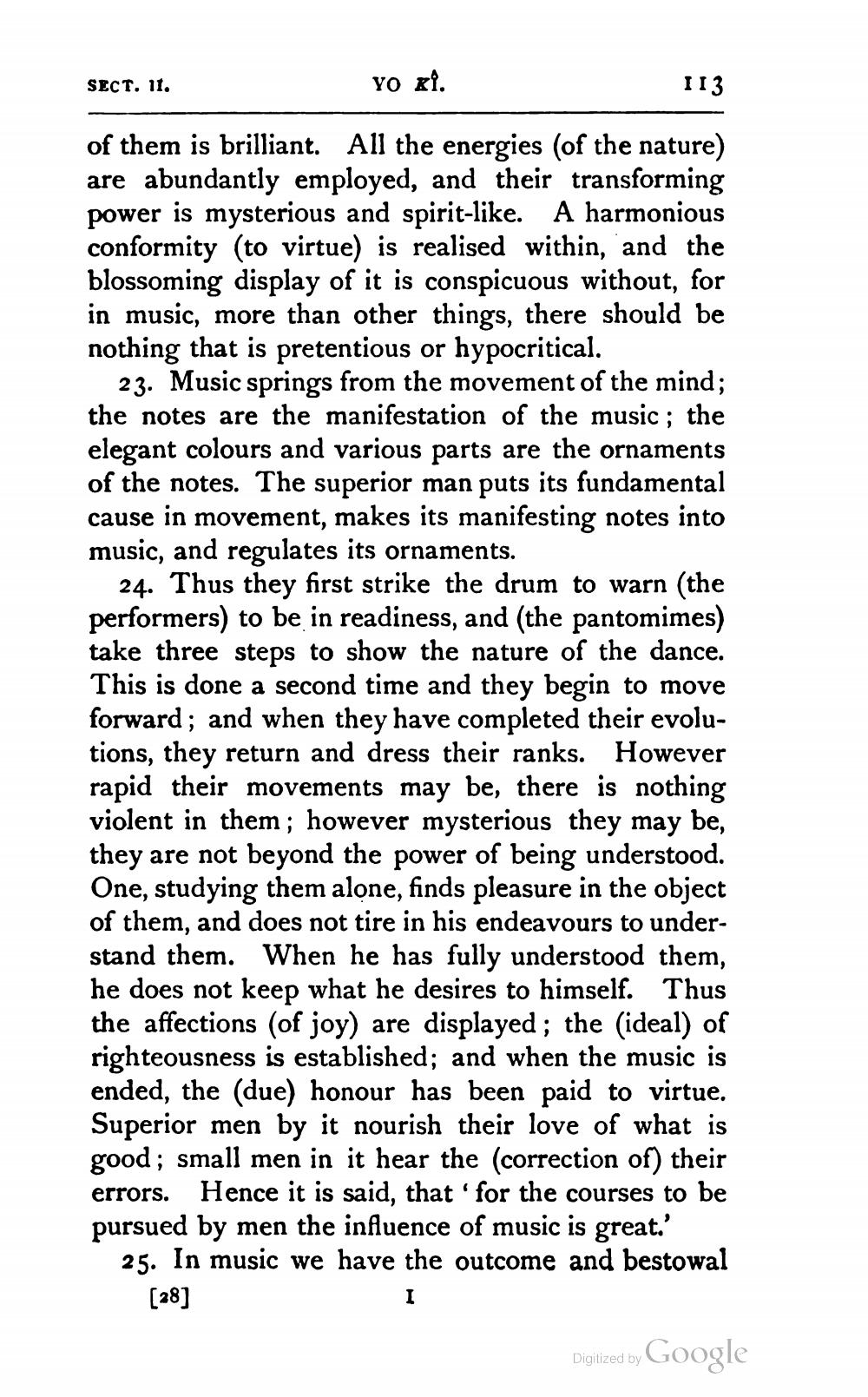________________
SECT. 11.
Yo Kl.
113
of them is brilliant. All the energies (of the nature) are abundantly employed, and their transforming power is mysterious and spirit-like. A harmonious conformity (to virtue) is realised within, and the blossoming display of it is conspicuous without, for in music, more than other things, there should be nothing that is pretentious or hypocritical.
23. Music springs from the movement of the mind; the notes are the manifestation of the music; the elegant colours and various parts are the ornaments of the notes. The superior man puts its fundamental cause in movement, makes its manifesting notes into music, and regulates its ornaments.
24. Thus they first strike the drum to warn (the performers) to be in readiness, and (the pantomimes) take three steps to show the nature of the dance. This is done a second time and they begin to move forward; and when they have completed their evolutions, they return and dress their ranks. However rapid their movements may be, there is nothing violent in them ; however mysterious they may be, they are not beyond the power of being understood. One, studying them alone, finds pleasure in the object of them, and does not tire in his endeavours to understand them. When he has fully understood them, he does not keep what he desires to himself. Thus the affections (of joy) are displayed; the ideal) of righteousness is established; and when the music is ended, the (due) honour has been paid to virtue. Superior men by it nourish their love of what is good; small men in it hear the correction of) their errors. Hence it is said, that'for the courses to be pursued by men the influence of music is great.' 25. In music we have the outcome and bestowal
[28]
Digitized by Google




